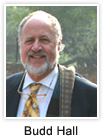 The faces of Canadian scholarship are changing. I have just returned from the annual Canadian gathering of academics working in the fields of the humanities and social sciences. The gathering known as ‘The Congress’ brings together academics from across Canada and from over 70 disciplinary associations ranging from Environmental Studies, Society for Church History, International Development, Non-Profit and Social Economy, Adult Education, Higher Education, Indigenous Education and more. Each year between 7-10,000 scholars participate in the event that takes place over 10 days. And each year the event is hosted by a different university. This year, the Congress was held at the University of Regina in the Province of Saskatchewan.
The faces of Canadian scholarship are changing. I have just returned from the annual Canadian gathering of academics working in the fields of the humanities and social sciences. The gathering known as ‘The Congress’ brings together academics from across Canada and from over 70 disciplinary associations ranging from Environmental Studies, Society for Church History, International Development, Non-Profit and Social Economy, Adult Education, Higher Education, Indigenous Education and more. Each year between 7-10,000 scholars participate in the event that takes place over 10 days. And each year the event is hosted by a different university. This year, the Congress was held at the University of Regina in the Province of Saskatchewan.
There are two observations that we can draw from the 2018 Congress: 1) the strong presence of Community Based Participatory Research (CBPR) presentations, and 2) a dramatic increase in books, papers and special events related to Indigenous Studies of all varieties and dimensions. Some examples of the first observation are: ‘Collaboration and Community Engagement: The Six Seasons of the Asiniskow Ithinkwak Roundtable” from the University of Winnipeg; “Collaboration and Community in Open Social Scholarship” with Susan Brown from Guelph University; “Becoming a Public Scholar: Community Engagement and the Future of the Humanities”, Western University; “On-Board with Community-Explore Regina’s Diverse Community-Based Research sites”, University of Regina.
Examples of Indigenous contributions included: Education: “The Key to Reconciliation” with First Nations’ National Chief Perry Bellegarde; “The Role of Scholarly Associations in Advancing Reconciliation”, Federation of the Humanities and Social Sciences; “Decolonizing Support to Indigenous Research and Research Training: International Perspectives” Social Sciences and Humanities Research Council; “Bringing Back the Buffalo”, an artistic event with First Nations artist, Joely BigEagle-Kequahtooway. To further underscore the strong presence of Indigenous themes, I spoke with the publisher of the University of British Colombia Press and asked her how many books they had in the catalogue dealing with Indigenous studies? “Hundreds”, she replied, “We have been adding new titles every week”.
Our UNESCO Chair was present as co-organisers along with Community Based Research Canada (CBRC) and the Canadian Association for the Study of Adult Education of a pre-conference workshop on “The Promise and Perils of Community-Based Research”. Walter Lepore from the Victoria office of the UNESCO Chair reported on our Knowledge for Change (K4C) Global Consortium on Training in Community-Based Research.
Ten years ago we would have seen a scattering of Indigenous contributions and a small number of events with a focus on co-construction of knowledge and community engagement. A distinctive flavour of scholarship is emerging in Canada that includes a growing awareness and respect for indigenous ways of knowing and a similar acknowledgement of the place of CBPR. The Canadian academic community is responding to challenges of the times.





